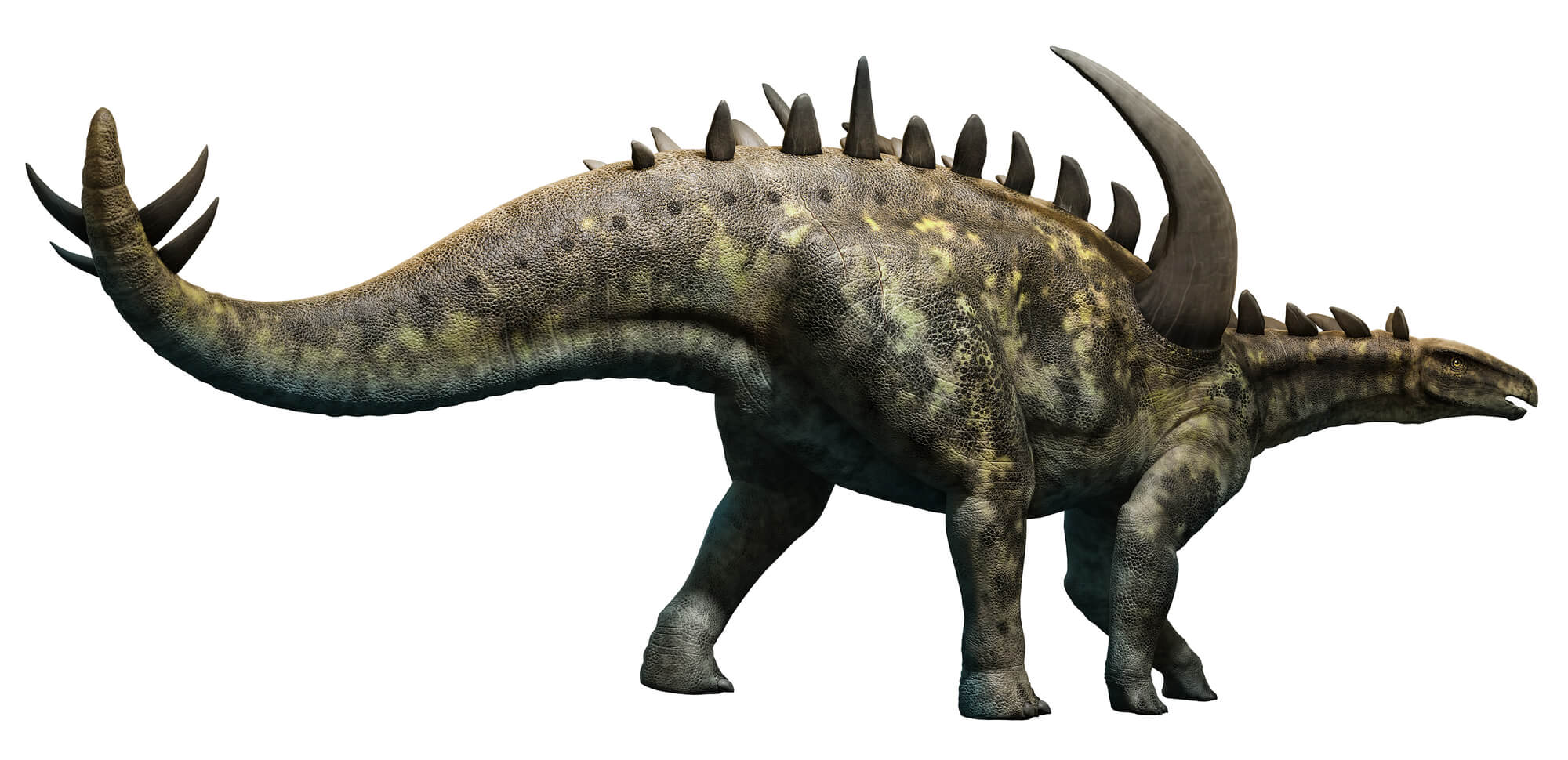Evolution created the basic conditions for the growth of morality: a tendency to develop social norms and enforce them, the ability to feel empathy and sympathy, mutual help and a sense of justice, conflict resolution mechanisms. … All these factors work together to create a moral framework
for all episodes of the series
Religion has an early advantage of thousands of years over any other form of social organization. She practiced before all other social organizations the consideration of the set of needs and tribulations of the human soul, and adapted her orders of worship to the human cycles of time, both biological and artificial, cultural (some of which she even created herself): day, week, month, year, generation and life . In a process of ceaseless cultural evolution, religion constantly changed the doses of its components - singing, music, preaching, texts, incense, body colors, clothing, foods. If something didn't work, she changed. There were no competitors, so there was nowhere to go.
In modern times, competing cultures have arisen: the democratic regimes and the capitalist and global trading society. These cultures have no experience with human psychology as religion has. They still do not provide an answer to the mental, communal and ritual needs of the person as religion does. And yet, in the last two hundred years, these cultures have created stable and rich community frameworks that provide their members with mental support and social and economic security. If so, why does religious belief still exist?
The architects in medieval Europe built supporting arches for castles, palaces and cathedrals. On the sides of each arch there are exposed and empty wall triangles. These unnecessary remains were an aesthetic problem for the architects. Over time, the architects began to decorate this empty space with plant decorations, animal reliefs and figurines of demons and angels. this empty residue, The spandrel (Spandrel), became an integral part From medieval and renaissance architecture. The Spandrel was not created out of any need. He "drove" on a free space. He seized the opportunity.
subtitle:
Spandrel decorations of an Arabian bow

This also happens in biology (indeed, the term "Spandrel” Biologist Stephen J. Gold also adopted for biology): sometimes a feature or an organ that answered one need began to be used for another need that is not related to the original need. Many organs in the bodies of many animals were used for a specific purpose and then another use was "dressed" on them, which gradually became a main use. The forelimbs of the bird's ancestor became covered with feathers and developed membranes. They survived in evolution because they improved the absorption of the sun's heat and the insulation and heating of the body, but gradually they began to be used for aviation as well. This secondary use, aviation, became a primary use. Rigid surfaces on the heads and backs of the Stegosaurus and other vegetarian dinosaurs increased the surface area of the body and survived in evolution because this improved the body's ability to absorb the sun's heat, but thanks to their rigidity, these surfaces also began to be used as striking organs in battle. Some of our DNA and that of every animal was once useful, but today does not code for proteins. It remained only because the mutations that got rid of it had no advantage and therefore they were not fixed in the DNA. It remains in us like the coccyx and other useless remains that testify to the evolution we have gone through.

Like junk DNA and bird wings, it is possible that consciousness and its offspring - the ability to imagine and the ability to believe in things that do not exist - are such a relic, a spandrel. Our big brain was used to back up neurons in stressful situations, and only over time did it develop consciousness and the ability to contain faith. Faith is a spandrel. She rode on the back of our abilities to imitate, learn, obey and cooperate. We pass ideas between us like bacteria pass pieces of DNA between them, because they don't have a nucleus to bind the DNA and prevent them from doing so. One of these ideas is faith, whether it is faith in a religion, a leader or a nation.
Cooperation, altruism and self-sacrifice - significant parts in the definition of morality - dominant in all forms of life, simple and complex. Since these qualities preceded religious belief, they can replace it. Morality is not a cultural or social invention. It is inherent in our biology. Altruism is the rule in nature, not the exception. We preserve social and economic order, much more than we go to war to destroy this order. We succeed in this despite natural multiplication and an increase in population density to an extent unmatched by any other zoological species. We demonstrate this success every time we demonstrate our belonging to nations, tribes, sports teams, organizations and associations, and every time we start a family, divide roles between us and raise children together. Even when we go to war, we help, share, sacrifice for our friends and even show compassion towards our enemies. The desire to do good is a powerful biological instinct, which transcends all human cultures and dominates the living world as well, which indicates that its foundation is deeper and more essential than cultural conditioning. Animals show altruism, show mutual concern, form alliances, protect offspring and even members of their group who are not relatives. The prevailing rule in the animal world is cooperation, protection of the weak and living in symbiosis. Those who do well to establish and maintain mutual aid networks survive mainly.
Evolution created the basic conditions for the growth of morality: a tendency to develop social norms and enforce them, the ability to feel empathy and sympathy, mutual help and a sense of justice, conflict resolution mechanisms. … All these factors work together to create a moral framework.
The greatest danger to life, in all its forms, has always been the environmental conditions: cold and heat, thirst and hunger, floods and storms, volcanic eruptions and earthquakes. Therefore, mainly those who learned to cooperate with the forces of nature survived. To survive, you usually don't have to beat your mate but learn to share food. You need to help your partner so that he knows he can trust you, and so he understands that it is better for him to help you in order to keep you around. You have to learn to cooperate in hunting or foraging.
Each of us is the product of the cooperation of thousands of generations of parents. There are many more parents who support and protect their children, sometimes at their own risk, than parents who alienate their children or knowingly put them at risk. If a person consciously endangers his offspring, he usually does so not by virtue of a biological command, but by virtue of a cultural imperative, whether he educates his son to volunteer for an elite unit in the name of loyalty to the nation, or flogs his son until he bleeds in the name of loyalty to religion. Our biology is a biology of compassion. It's just the culture that spoils the whole business.
subtitle:
To suffer in the name of religion: the observance of "Good Friday" (the day of Jesus' crucifixion) in the Philippines, 2019.

Some argue that without God everyone will do what they want, and a Nietzschean morality of violence in the style of "the strongest survives" will prevail and all Dalims will prevail; We need a higher order for us to be moral. There are at least four refutations to this argument. For example, let's take God in Judaism.
First, this god commands to behave cruelly. With regard to animals, he commands slaughter with bleeding and the practice of atonement, and dictates eating meat as a custom. He orders to kill - by stoning - those who do not observe the religious mitzvot, for example homosexuals or people who travel on Shabbat. He commands to slaughter those who are not members of the religion - for example the slaughter of the people of Canaan, including women, children and animals, or the command to destroy Amalek. It commands the discrimination of women, among other things by prohibiting prayer and worship, and restricting body and voice freedoms. All of this is contrary to the human and biological drives of most of us, drives of compassion and sharing.
Second, we have already seen that biological drives incline most animals to cooperation, mutual restraint and kindness, and not to all-out war. If "everyone does what they want", it does not mean that society will degenerate into anarchy. vice versa. The company will be in excellent condition. We see this in Scandinavian societies, where the rates of belief in God are the lowest in the world, and the rates of social solidarity, equality and welfare are the highest in the world. God, in this respect, is redundant. It is an ancient relic of cultures, which needed it in the past for needs not related to morality: they needed it to create a community and dictate practices that would help community members identify each other (through common worship, a common language, etc.), and distinguish them from those who are not community members. Today there are enough substitutes for God for that: the law, the community, the party, the ideology, the nation, humanism, and even identification with sports teams. There is no lack of moral worldviews that do not need God to form a framework for our natural moral rules of conduct.
Thirdly, if a certain person's morality depends not on his natural emotion but on the text written in some religious book, then this is a very shaky morality. It's enough for the book to change, it's enough for there to be a godly verse in this book, it's enough for a religious priest to give a godly interpretation to a certain verse, so that the believer - for whom everything written in the book is the law of God - will commit cruel acts, contrary to his moral intuition, and all this only because of the impulse His to obey authority. As we saw in the first reasoning, two paragraphs above, there is no lack of examples of God commanding cruel and immoral behavior, towards both man and animal.
subtitle:
A butcher at his craft, the eve of Yom Kippur, Jerusalem.

And fourth, some say that without God, man will lose his moral impulses. What happened to the German soldiers in the Holocaust and World War II refutes this claim. When the Germans invaded Eastern Europe and began killing Jews and Soviet prisoners of war, they did not feel relieved or happy about their actions. They felt tension. They were stressed. They were nervous. They suffered from insomnia. They turned to alcohol to cope with their actions. They were traumatized. They also became violent towards their fellow soldiers and their commanders. (The same thing happened to the US Army soldiers in Vietnam. The incessant killing they carried out in Vietnam caused them tremendous mental stress. They shot their commanders and colleagues, or blew them up with hand grenades. They called it Fragging.)
With a few exceptions, most German soldiers felt distress and suffering when they shot their Jewish victims. They did not like this task. They reported on the mental difficulties they had with the murder of the Jews. In their letters home they reported with shock the sights. Most of them reacted negatively to the massacres they committed. Only a few treated it with pride. This is one of the reasons why the murder of the Jews in the Holocaust changed from shooting to gas murder: the murderers could no longer bear the sight of their victims, psychologically. Even the head of the SS Heinrich Himmler said (in a speech in Posen in October 1943) that the murder of the Jews is a difficult task in terms of the feelings it evokes. He did not regard it as a pleasurable act.
When they wrote home about the murders, many of the murderers expressed nausea, despair, grumbling and disgust at the mass murders they and their friends had committed, from the devastation they had reached during the dynamics of the war, and from actions they had done or seen their colleagues do. Biology raised a question in them in view of the acts of killing they committed, but their culture - the Nazi culture - claimed that there was justification for their actions. Our biology, our natural urges, oppose killing. Culture is the one that, in the name of the artificial buffer it has created between groups of people, gives permission for acts of mass killing and commands us to see this as a mitzvah.
Joint action did not begin before the development of religion five thousand years ago nor before the development of man two hundred thousand years ago. It began two billion years ago, when a mitochondrion began to cooperate with a membrane-bound cell and provided it with energy in exchange for protection. For billions of years, any living creature that failed to raise offspring in cooperation was eliminated, and those who cooperated in raising offspring and creating a supportive environment remained. Human societies have only existed for tens of thousands of years. The religions and the moral rules they dictate have only existed for thousands of years. This is the blink of an eye, compared to the cooperation that has existed in nature for billions of years. We are the descendants of millions of generations of cooperation that took place before any form of religion, culture or belief had a chance to tell us what morality is and what altruism is.
We are inherently good, from our biological infrastructure. Man depends throughout his life, from childhood to old age, on a network of social relationships. He depends on others for sustenance and mental well-being. Good behavior increases our chances of making social connections. Social behavior exists among all mammals. In part, it is a product of the need for the mother and the infant to bond, a bond designed to bring the infant to maturity, because without breastfeeding and care it will not survive. In part, this behavior turned out to be because a group that acted in coordination improved its chances of gaining territory and resources and winning the war for its existence. Those who demonstrated social behavior improved their chances of obtaining a pairing, resources and social status, and winning cooperation and trust. Even if social behavior is based on interest, this means that it is anchored in a much more fundamental basis than free will, which many believe does not exist: this anchors it in existential necessity, as a biological-neuronal-physical fact: we must behave socially. The social drive is an existential, survival drive.
Social morality exists in every language and culture. If morality were a product of culture, we would expect each culture to formulate its own unique concept of morality, But that is not the case. Every religion includes supportive social frameworks, relief and welfare institutions, family values and moral imperatives, thanks to the same natural morality that resides in all of us, the same morality that gave birth to religions and all social mechanisms. Religion is only a formal coating for our natural moral impulse, a consequence of our natural moral impulse, not the origin of this impulse.
Some argue that without religion there will be no moral society and that man has to choose between religion and the life of a "man versus a wolf". It is a confusion between cause and effect. It is not thanks to God that we have morality. vice versa. The gods were invented by man tens of thousands of years ago, as commercial gods, to ensure the yield of the land, hunting and fishing, and as insurance gods, to ensure man against natural hazards, and this long before he linked them to moral claims. The gods were used by man for commercial transactions and to try to control the forces of nature. It was only thanks to our natural morality that we were able to attach moral qualities to the gods, and we only did that after tens of thousands of years in which we lived in small societies, where it was enough for us to supervise each other, and we did not need the invention of God in order to dominate social order, to frighten outliers and force them to fall in line. Religion tries to sell us a story according to which it was religion that brought morality with its wings. The truth is the opposite: all the characteristics of morality - sharing resources, mutual aid, concern for others - are biological traits that existed in nature long before the human race existed, traits that existed among the human race long before man created religions. Long before religion we were moral.
Morality does not have to be expressed in religion. It can be expressed in humanism, charity, protection of animal rights and avoidance of tyranny (giving more rights to humans over animals), vegetarianism, veganism or pacifism. There are many variations, but all of them are governed by the ancient Jewish principle "What is hateful to you, do not do to your friend" - "friend" in the broadest sense of the word: a member of your family, your neighbor, your co-worker, a member of your city, your country, your language, your culture or any person and animal that you consider worthy of it . Many secular worldviews are based on the attempt to live a moral life, to be as good as possible to those around you. You don't need God for that. You just have to be human.
Our biological past connects us to the entire animal world and makes us part of a magnificent chain, not only in the rare cases when we go to war, but mainly in our most common behavior: when we help, share and sympathize. Moral behavior is not just a social or cultural norm, but a biological necessity. When we see a person in need or when we have the opportunity to do a good deed at the cost of a little trouble, many of us do it and many see such behavior on the part of others as natural. Otherwise there wouldn't be people calling us every hour asking for a donation; Otherwise people wouldn't raise their hands for hitchhiking.
subtitle:
Illustration

Social morality, cooperation and altruism preceded religions and are not dependent on them. Kindness is inherent in us. Religious belief is only one way to implement this kindness, a rather cumbersome way and full of caveats. Biology has equipped us with powerful tools for social behavior. We don't need religious faith for that. Believing in ourselves is enough.
Additional sources
John Ellis, Warriors (Systems, 1982)/
Yitzhak Arad and Israel Gutman, The Holocaust is documented (Yad Vashem, 1978), pp. 276-275.
Christopher Browning, regular people (Yediot Books, 2004).
Richard A. Gabriel and Paul L. Savage, A crisis in command (Systems, 1981).
France de Val, inherently good (Kinneret, 1998), p. 43.
William Westmoreland, A soldier reports (Systems, 1979).
Frans de Waal, Primates and Philosophers (Princeton, 2006), ch. 1.
Ernst Klee, Willi Dressen, Volker Riess, Hugh Trevor-Roper, The Good Old Days: The Holocaust as Seen by Its Perpetrators and Bystanders (Fischer, 1988).
David Sloan Wilson and William Scott Green, Evolutionary Religious Studies: A Beginner's Guide (September 2007 draft).

6 תגובות
You should read the book "God Plays with Dice", he refutes all his claims one by one
Any reporter who considers himself smart decides what happened in evolution,
Complete nonsense, enough to claim things from the fevered mind without any evidence.
Suggesting to the "respectable" reporter that he open Darwin's book once in his life.
Where did my comment go?
Dear Yehuda Sabdarmish, you are wrong. Evolution did cause homo sapiens to survive, but how? With the help of cooperation and tribes. Just as she created polar bears - which have enough strength and physical characteristics to survive, in our time and monkeys developed social behavior.
Hence - religion was created to provide explanations and to be a kind of framework and something superior for every community.
The first sentence in article 5: "Evolution created the basic conditions for the growth of morality:" brought me to the sad conclusion that this article with its four predecessors could be a successful example of their previous article on fake news!!!
Evolution was the cause of only one thing, the survival of the species in question, and not all kinds of other nonsense such as "morality" or "religion"
Please respond ethically!
Sabdarmish Yehuda
Interesting series but:
At the base of all parts of the article is hidden a wrong assumption of "you chose us"
or "man is the jewel of creation", an assumption even if it is subconscious
dictates a series of wrong conclusions...
All the examples given by the author indicate evolutionary development
For millions of years, the homo type is also the result of a similar development
But the author's comments/conclusions that arise from the comparisons
For other species is wrong!
For all the examples relate to instinctive activity
What is not true about the human race is that:
The development of instincts and inhibitions among the human race
About three million years behind the technological development.
Therefore, the technological development required the development of a series of laws and regulations that will replace the instinctive inhibitions to prevent harm to others,
The human race's systems of instincts and inhibitions are built for
family groups of no more than a few dozen individuals,
If the transition to staying in large groups and the necessity of an alternative to instincts and inhibitions developed religions that created systems of laws,
If the development of culture and especially science developed systems of laws
which were supposed to allow life in large populations,
Science has made religions redundant but in many cases
Awakening "requires" religious belief and leaders continue to rule
through spreading ignorance that instills faith in religion,
(The best example of this is with us)
The writer's repeated attempt to treat the details that sacrifice themselves
Altruism is wrong since the self-sacrifice is for the sake of the species
Hence egoism!
And the best example that altruism is not part of the instinct system is the increase in violence as the density increases!
It turns out that due to the explosion of the population, also systems of laws and regulations
fail to prevent behavior that goes against the instincts,
Therefore, the failures of the systems, in many cases failures from which it turns out
Because the title "good by nature" is wrong...
Again and again the writer repeats the confusion between mutual help and "kindness"
Confusion since once again the mutual aid is for the sake of the species not for the individual.
The bigger confusion is between instinct and inhibition systems
that developed over millions of years and morality which is a (philosophical) concept
Newly created together with the technological development.
Even if I'm wrong and we are "good by nature" it turns out again and again
Because we harm and destroy nature (all rights reserved)
Because of the combination of population explosion and technological development
The human race is already destroying the environment in which it lives
and is in danger of self-destruction...
to define a species whose technological development allows it to be destroyed
His natural environment and himself "good by nature"?
A species that developed legal governance systems and laws and regulations to replace them
instincts but is unable to control the capacity for destruction
is not "good by nature"...